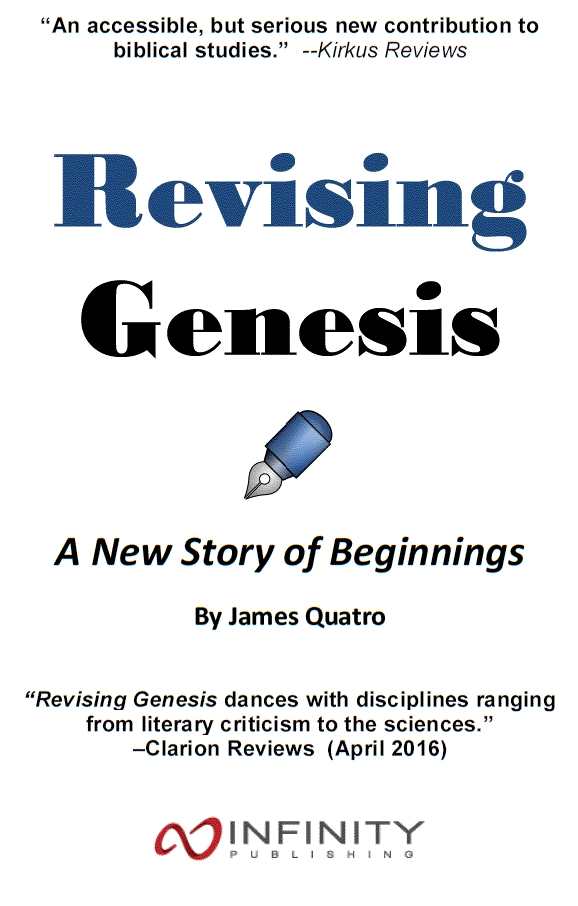
Revising Genesis
A New Story of Beginnings
Revising Genesis dances with disciplines ranging from literary criticism to the sciences.
James Quatro sets out on an interesting and complicated eisegetical quest with Revising Genesis, an ambitious work that endeavors to show that the first book of the Bible can be verified by historical and scientific records.
Revising Genesis aims less to rewrite the first book of the Bible than to present it in a fresh, logical, decidedly Christian, and historically sensible way. It makes several interesting moves in service of this repackaging. The work claims both that the biblical text’s author presents literal realities, and that they employ metaphorical language in service of those histories; it involves disciplines ranging from geology to astronomy, and argues that ultimate truths are both observable and obscured by dependence on these sciences. This dance between criticism and credulity exists throughout, making for an intriguing, if sometimes discombobulating, reading experience.
The first portion of the book most resembles biblical criticism, drawing in both synthesized scholarly biblical work and linguistic interpretation to redefine what a “literal” reading should involve. Ancient mythologies—whether contemporary to, or connected to, biblical stories—are incorporated as proofs of the Bible’s veracity, though they are ultimately discredited for the ways in which they contradict the biblical author.
Genesis becomes the story of a new age, rather than a new Earth; the first man and woman in it are merely the first man and woman of a new human era. Humanity’s ills become the result of the forbidden “fruit” of relations with other, inferior, divine beings. Such creative moves also frustrate, though, in their dependence on literalism, which becomes a self-sustaining reading rubric. The biblical author is treated as a deliverer of absolute truths, but who they are is never properly defined. This work is clearly conversant with extant biblical scholarship, and incorporates theories from scholars including Julius Wellhausen and Ephraim Speiser, though it does misdate the documentary hypothesis.
Later sections concern themselves with rooting Genesis’s events in history, and exceed opening chapters in their ambition. They draw in astrology to argue for biblical epochs foretold by the stars. The pyramids become a repeated historical “proof” that human beings, beginning with “Eve,” once cavorted with divine beings. Later chapters loop back on opening pages, repeating their interpretations of the stories of the patriarchs with determination, but reintroduced theses seem flimsier in the light of these recaps.
The tone throughout brims with conviction, and becomes increasingly exclamatory toward the end. A correlating sense of authority fails to shine through the text, though, which never quite finds its center. It employs a plural voice when offering conclusions, but this royal “we” becomes a point of confusion. Sans presented credentials, it’s never quite clear why the translations given here should be trusted over and above those of established scholars, linguists, and biblicists. Errant grammar further undermines the work, including mistakes in capitalization, punctuation, and spelling.
Revising Genesis dances with disciplines ranging from literary criticism to the sciences, but rests most easily among predictive religious texts that anticipate new, Christian millennial ages. Those who look forward to coming religious eras, particularly those who believe that such epochs are predicted in the Bible, should find much in this work to provoke interest.
Reviewed by
Michelle Anne Schingler
Disclosure: This article is not an endorsement, but a review. The publisher of this book provided free copies of the book and paid a small fee to have their book reviewed by a professional reviewer. Foreword Reviews and Clarion Reviews make no guarantee that the publisher will receive a positive review. Foreword Magazine, Inc. is disclosing this in accordance with the Federal Trade Commission’s 16 CFR, Part 255.
